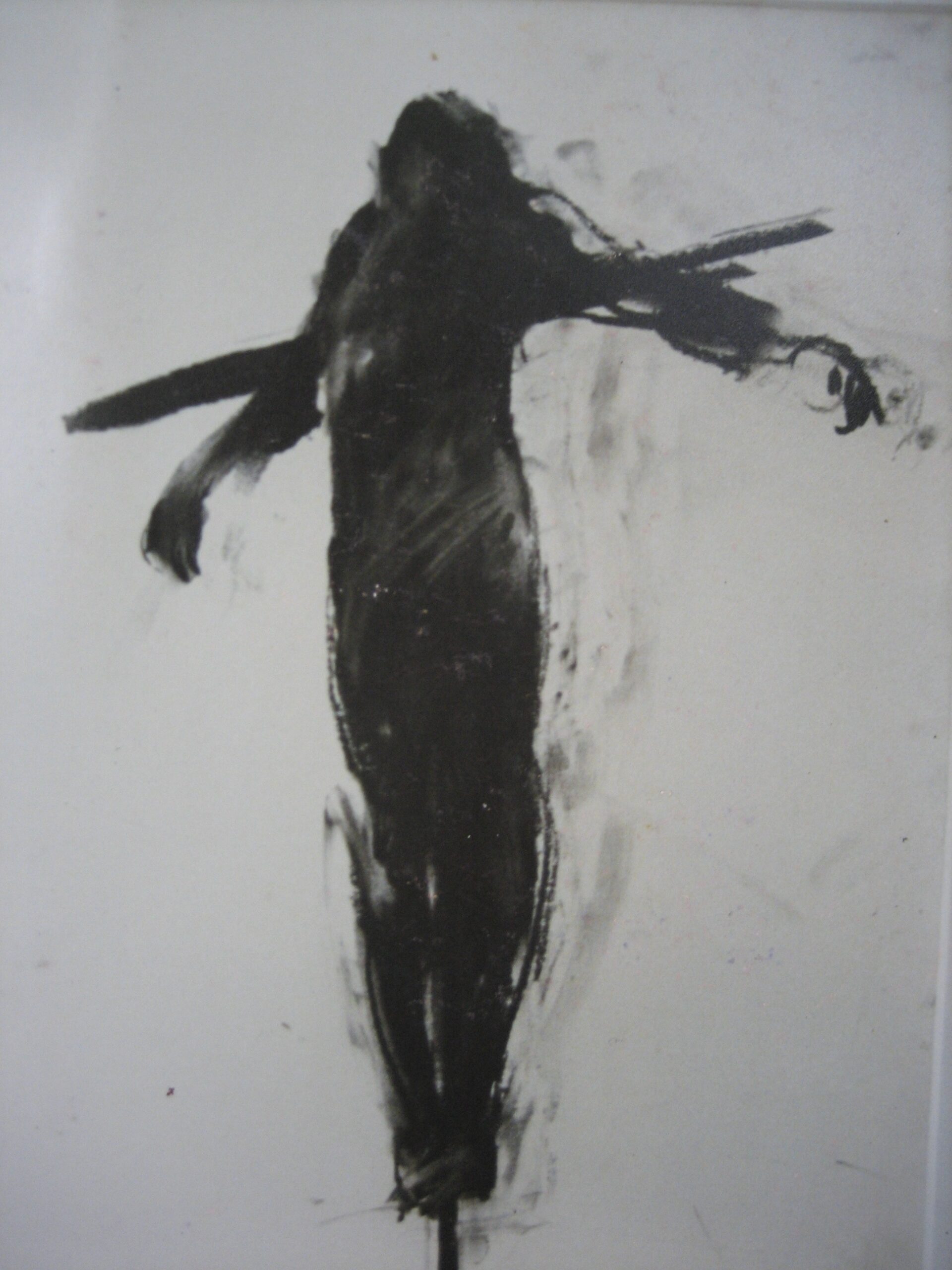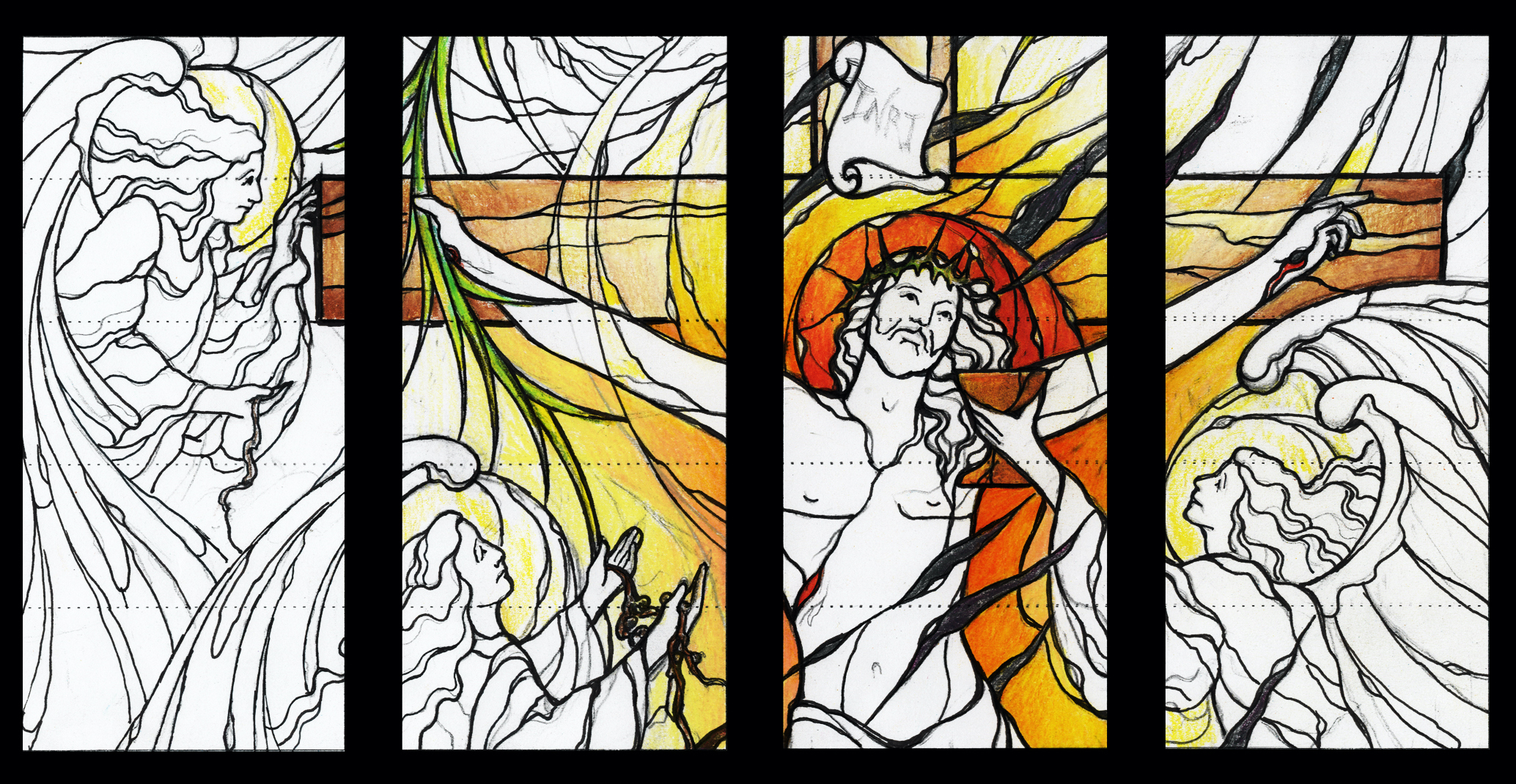Author’s Note: This is a sermon written for the Tre Ore service for Blessed Savior Lutheran Church in Florissant, MO, this year only streaming online live.
On most nights my family prays Luther’s evening prayer which ends—”in to your hands I commend my myself, my body and soul and all things.” Yet for centuries before Luther, these same words have been sung every night throughout the church in Compline, the final prayer office of the day: In manus tuas, Domine, commendo spiritum meum. It is related to the less old child’s prayer: “Now I lay me down to sleep, I pray thee Lord my soul to keep; if I should die before I wake, I pray thee Lord my soul to take.”
As the day ends, and we enter into the oblivion of sleep, it seems fitting that we lay our lives in the hands of our Creator. All of these prayers at nighttime set forth a double meaning—each night we enter into a slumber that may not end—each night is a “little death” and each morning when we awake, we are one day closer to the real thing. In sleep we are helpless and vulnerable; it is fitting that our final words be, “Into your hands, O Lord.”
Yet it seems that the helplessness and vulnerability of the night has extended into the day as well. We awake and we watch the numbers, “over one million” cases in the world, “70,000 deaths.” Each day the number of cases and deaths related to the new coronavirus rises. Each day the circle tightens, the pestilence draws closer. “Into your hands, O Lord,” – now this has become not just a prayer of resignation and peace but a prayer for help and deliverance.
That is actually what we hear where the prayer first appears in Scripture, in the prayer of Psalm 31:

Psalm 31: In you, O Lord, I seek refuge; do not let me ever be put to shame; in your righteousness deliver me. Incline your ear to me; rescue me speedily. Be a rock of refuge for me, a strong fortress to save me. You are indeed my rock and my fortress; for your name’s sake lead me and guide me, take me out of the net that is hidden for me, for you are my refuge. Into your hand I commit my spirit; you have redeemed me, O Lord, faithful God.
It is the words of this psalm—Psalm 31—that are on the lips of Jesus at the very end—a prayer for deliverance, for safety, for rescue from death. But the heavens are silent. “Into your hands I commit my spirit” is not a prayer of resignation but of salvation. Yet hanging from the cross, his spirit, the breath of life that animates his being, marked by the regular rising and falling of the breast—his very life—leaves him—he breathes out his last—exspirare—he literally expires.
It would seem that, in spite of his prayer, Jesus has gone the way of all flesh. For each person without exception meets their date of expiration. Prayers for deliverance from death have been voiced from the very beginning, myriads of supplications have ascended on high, but ultimately the heavens have remained silent. We read in the very first genealogy in Scripture from Adam onward the repetition of a single refrain like the rhythmic tolling of a funeral bell, “Thus his days were such and such years and he died … and he died … and he died. Each man breathes out his last.
It is interesting to look at the last words of people recorded throughout history. There are many such compilations where you can peruse the final words of the famous. I was reading through a very long list this morning. The final words they speak may invoke hope, or fear, or faith, or despair, or humor, or indifference, or bravery, but in the end, the results are the same—they are the final words—they breathe their last. The infamous actor John Barrymore quipped, “Die, I should say not, dear fellow. No Barrymore would allow such a conventional thing to happen to him.” But those were his last words, and he did follow convention … he breathed his last. So it is with all flesh. The Preacher of Ecclesiastes remarked on the inevitability of death and thus the vanity of life: “No man has power to retain the spirit, or power over the day of death … and who knows whether the spirit of man goes upward and the spirit of the beast goes down into the earth? … the dust returns to the earth as it was, and the spirit returns to God who gave it. Vanity of vanities, says the Preacher; all is vanity. … that is the end of the matter; all has been heard.”
Jesus’ words were remarkable words—and his final ones were filled with love and hope and trust and finally with the plea of all of God’s people—David and all who prayed this psalm with him. And yet if they are his final words then they are ultimately tragic and bear the same tragedy of the whole human race. In fact, that is precisely what these words do—they bear the tragedy of the whole human race! That is why we gather to hear these words—not because they are Jesus’ last words—for then this would not be a Holy week or a Good Friday—no we eagerly listen to these words because they bear the tragedy of the whole human race—our tragedy—to open up a new way, to give a different ending, to break convention and the iron grasp of death. In fact, it is precisely because these are not his last words that they can bear our tragedy. It is precisely because these are not his final words that they now mean something fundamentally different, inspired by a new hope, pointing to a new and eternal outcome. Today we hear the words not of a dead Christ but of the crucified Christ who died and rose again: “Father into your hands I commit my spirit” is a prayer that has been answered but beyond death, in spite of death, in victory over against death! No, these are not Jesus’ last words – thanks be to God! – this is not his last breath … for the Father who gave his Son over to a world that breathed only violence and hatred and death raised him to life, so that on Easter Day he might appear to his disciples and breathe on them: “Receive the Holy Spirit” … and he has breathed this life-bestowing, death-defying Spirit into each of you and by this Spirit we cry out “Abba, Father!” with the confidence of the children of God that nothing, not even death can snatch us from his hand. “Father into your hands I commit my spirit.”
And so our worship does not end here. It moves beyond Golgotha to hear the words of the living, resurrected Lord, it moves beyond the shadow of the grave to a new reality, a new dawn, a new Spirit that breathes life into a people—you and I—no matter we are – a people that bear witness to a moribund world that death will not have the final word.
O.P. Kretzmann once recounted how on November 11, a few years after the second World War, two men were standing in London, waiting for the tolling of Big Ben in memory of those who had died in the war … The air was alive with the memory of the dead … The lips of the clergyman moved in prayer … His companion turned to him: “Do you really believe in the life after death, that all these men may still live?” … The preacher nodded … His companion whispered: “Yours must be a wonderful faith.” … It is.


Leave a Reply
You must be logged in to post a comment.